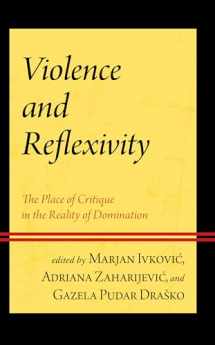
Violence and Reflexivity: The Place of Critique in the Reality of Domination
Book details
Summary
Description
Addressing the relationship among social critique, violence, and domination, Violence and Reflexivity: The Place of Critique in the Reality of Domination examines a critique of violent and unjust social arrangements that transcends the Enlightenment/postmodern opposition. This critique surpasses the "reflexive violence" of classical enlightenment universalism without committing the "violence of reflexivity" by negating any possibility of collective radical social engagement. The unifying thread of the collection, edited by Marjan Ivkovic, Adriana Zaharijevic, and Gazela Pudar-Drasko, is a sensitivity to the field of tension created by these extremes, especially for the issue of how to articulate a non-violent critique that is nevertheless "militant," in the sense that it creates a rupture in an institutionalized order of violence. In Part One, the contributors examine the theoretical resources that help us move beyond the reflexive violence of the classical Enlightenment social critique in our quest for justice and non-domination. Part Two brings together nuanced attempts to reconsider the dominant modern understandings of violence, subjectivity, and society without succumbing to the violence of reflexivity that characterizes radically anti-Enlightenment standpoints.


We would LOVE it if you could help us and other readers by reviewing the book
Book review



